So You Want to Write in a Journal: Journal Prompts for Beginners
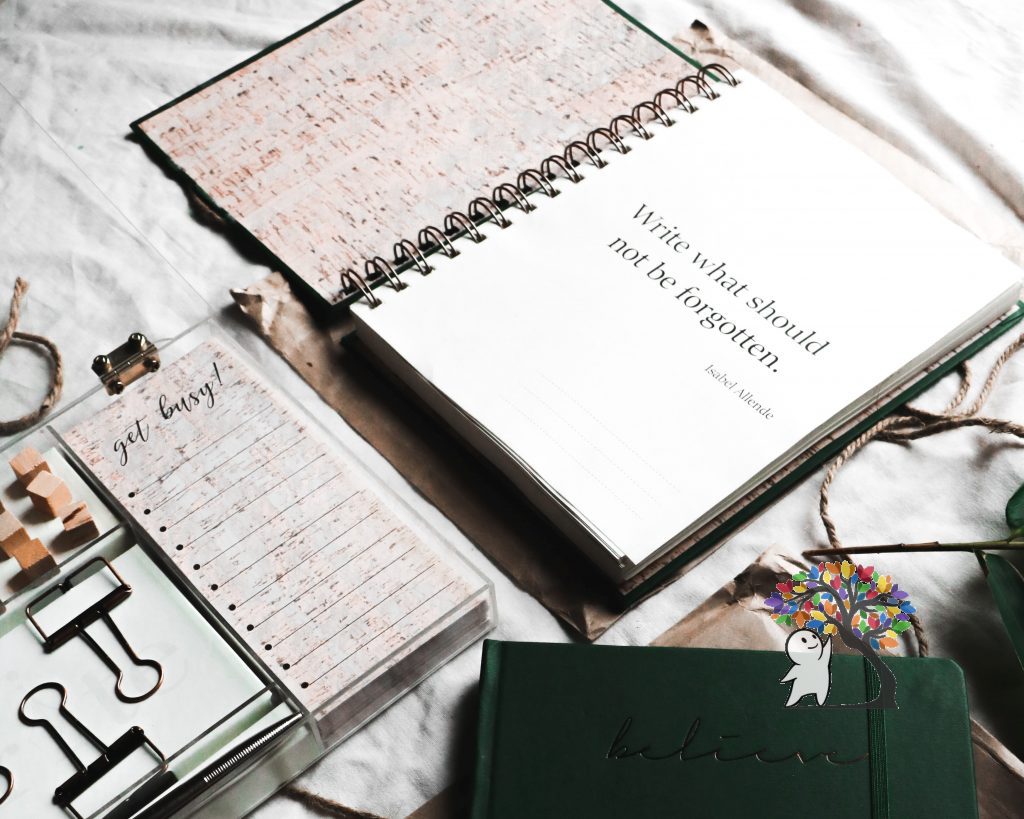
We have all heard that writing in a journal can be good for us and our mental health. Psych2Go even made a video about it, which you can find on our YouTube channel. Although we all know how beneficial journaling can be, many of us do not quite know how to get started. This article presents types of journal prompts so you can get writing and stay psyched.
But Before We Begin…
There are three things you should know. First, journaling is way more effective if you know why you want to keep a journal in the first place. Is it to get your random thoughts on paper? Are you looking to track your depression, anxiety, or other mental health symptoms? Would you like to get insight into your triggers? Or perhaps you want to keep a journal to help you set and reach your goals. Although there is no right or wrong way to keep a journal, knowing what you want to achieve will help you narrow down what type of prompt might work best for you.
Second, keeping a journal works best when you do it daily. It is normal to skip a day here and there due to life circumstances, but the keys to journaling success are accountability and perseverance. Better mental health can look like a number of things, such as getting out of bed on a daily basis, feeling depressed less often, not having a panic attack when you have to organize your closets, or feeling more comfortable in social situations. This is different for everyone. No matter what better mental health looks like for you, it starts with keeping a promise to yourself to take at least one small step towards it on a daily basis. For those of you who want writing in a journal to be part of your self-care plan, this means setting aside time every day to make this happen.
Lastly, people journal for many more reasons than can be listed in one article. This posts focuses on the following reasons people choose to write in a journal:
• To be calmer, more content, and more mindful on a daily basis.
• To track your symptoms and triggers.
• To be more accountable.
• To set and reach your goals.
Now grab your journal and let’s do this!
Prompts to Get You Started
Journaling for Mindfulness and Serenity. Originally a Buddhist concept, mindfulness has been widely embraced by the psychological and self-help communities over the last decade. Penn State researcher Dr. Jeff Hayes reported the benefits of mindfulness—such as reduced stress, increased empathy, less anxiety, and improved emotional intelligence—can help patients learn how to manage anxiety and depression, as well as work through trauma and manage stress.

So How can we use it?
According to Christi-an Slomka at the Calm app, keeping a mindfulness journal is perfect for people who want to:
• Practice gratitude
• Release emotional baggage
• Feel more connected to their mind and body
• Develop intuition
• Identify and listen to emotions

So How can you get started?
There’s no wrong way to keep a mindfulness journal. When writing a mindfulness journal prompt, just keep in mind the end goal is to increase your self-awareness and decrease your anxiety. You do this by allowing yourself to let your thoughts and feelings flow without judging them. Check out these sample prompts and use the one that calls to you:
- As I sit calmly, I notice my inhalations coming in through my nose. I notice my exhalations going out through my mouth. I match my slow inhalations to my slow exhalations. As I repeat this several times, I notice that my body ____________.
- I sit quietly and observe my thoughts as they float through my mind. I don’t judge my thoughts, but let them float freely and notice. As I do this, I notice ____________.
- I focus on all aspects of (pick a routine chore, such as laundry or cooking). I give my full attention to every part of this chore. As I do this, I notice _____________.
- What is enough for me? What are some thoughts or feelings that surface for me as I think about this?
- I notice my emotions and moods. I allow myself to feel my emotions as they come up, without judgement. As I do this, I discovered _____________.
Journaling to track your symptoms and triggers. According to GoodTherapy.org, a trigger is any sight, smell, sound, feeling, or thought that increases your mental health symptoms, reminds you of a past trauma, or makes you want to relapse. Symptoms are any physical, mental, or emotional feature that is associated with a condition. Tracking your symptoms or triggers, along with how intense they were for you on any given day, helps you understand your mental health patterns. This understanding then allows you to determine how you want to deal with your symptoms and triggers.
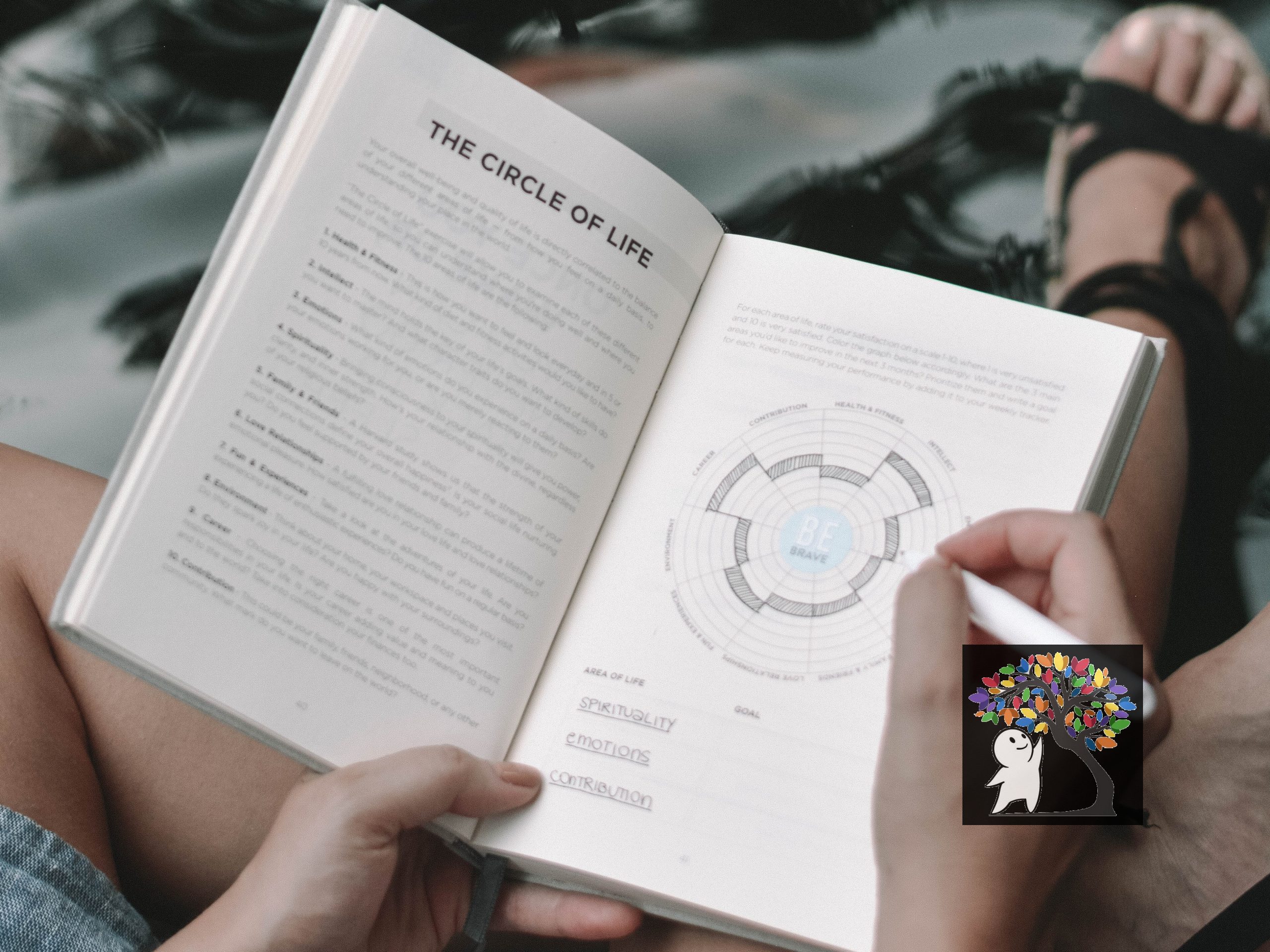
So How can we use this?
The best way to keep track of symptoms is to not only write down what you are thinking during bad or stressful times, but also how you feel during a normal day. This means a feelings journal and/or symptom tracker needs to be completed daily so that you can make note of any patterns, such as increased anxiety before family functions, a “crashing” feeling after eating sugar, fears of success, or increased depression since going to a new school. Try using a template like this one every day:
• What are three events or themes from your day?
• Positive Feelings:
• Negative Feelings:
• Thoughts When Those Feelings Occurred:
• Intensity of the Feelings (1-10, with 10 being “most intense”):
• Have these feelings ever triggered you to self-sabotage, lash out at others, withdraw from others, etc.? Please describe.
• Have these feelings ever inspired you to reach out to others, practice self-care, or feel proud of yourself? Please describe.
Journaling to develop more accountability. According to the blog Habits of Wellbeing, accountability—or the act of taking responsibility for your thoughts, feelings, and choices—is developed by choosing to do four things on a daily basis:
• Taking ownership of your life
• Taking responsibility for your choices
• Navigating the obstacles in the way of your goal
• Holding yourself accountable for the results
• Making the choice to do these four things on a daily basis sounds like a lot of work, but can help with your mental health. Not only does developing your accountability make you more likely to achieve your goals, but it can also make you less anxious.
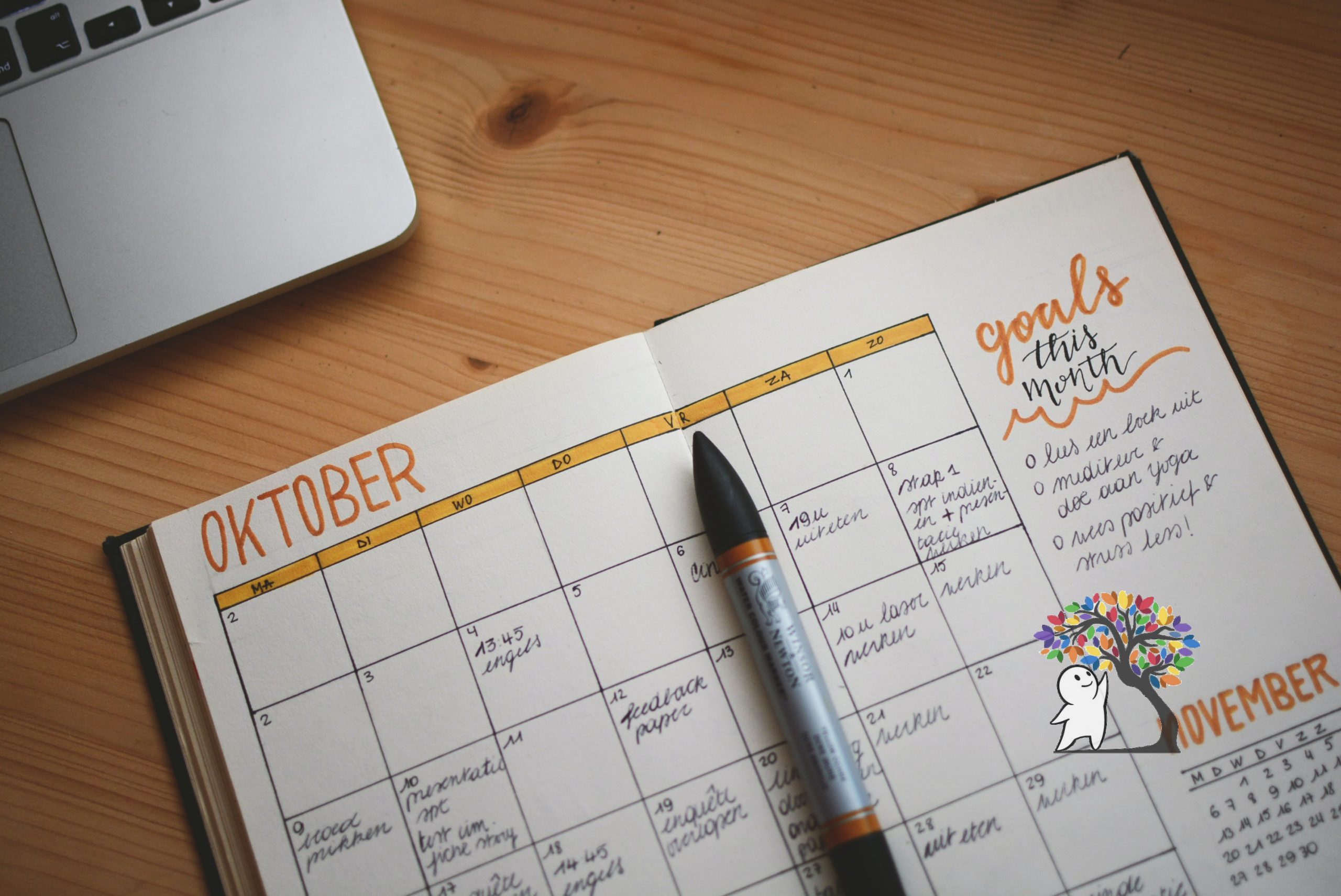
So How can we use this?
Since accountability is the result of your conscious choices, it makes sense that developing accountability by journaling involves two daily steps.
1. Develop and keep a daily journaling routine, like this one:
• Write for 5 – 10 minutes a day.
• Give yourself a time limit to reach your goal.
• Write down your progress towards your goal every day.
• Get real with yourself about any problems you’re facing—even if the problem is you not feeling motivated.
2. Include a daily accountability prompt in your journal. Try one of these:
• What are three things you haven’t taken responsibility for, but you find yourself thinking about? What are the pros and cons of taking responsibility for this?
• What is something you procrastinate doing? What is one step you can take today towards getting this done?
• What is something about your life that bothers you? What can you control about this? What is out of your control?
Journaling to set and reach your goals. According to Success.com writer Benjamin Hardy, people who write down their goals and journal about them are more likely to reach them. Perhaps it is because the eye-hand coordination needed to write in a journal puts you in a meditative state. Or maybe focusing on your goals daily keeps them on your mind. Either way, using a journal for goal-setting is a simple way to get closer to your dreams with a minimum of stress.
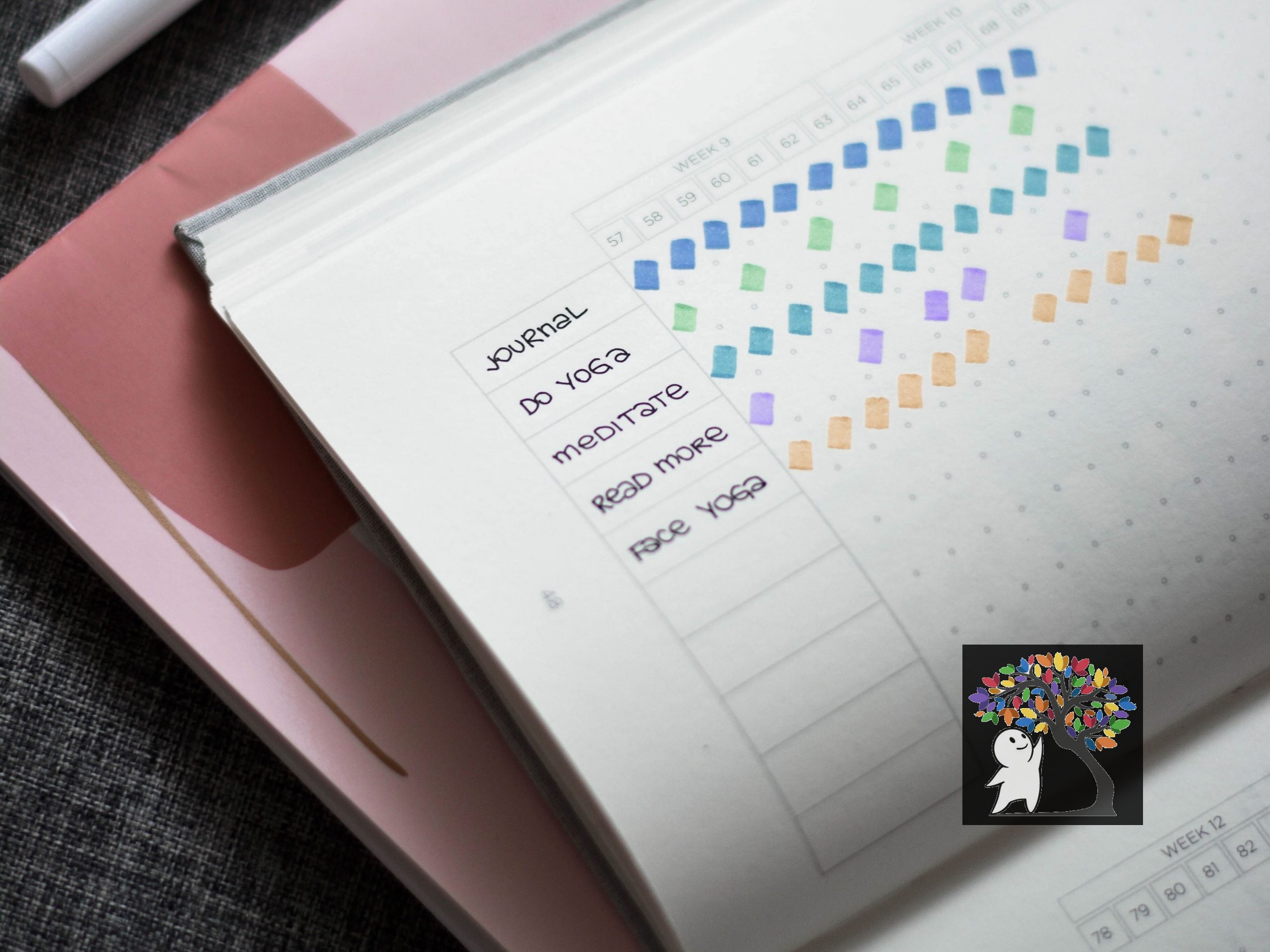
So How can we use this?
Using your journal for goal-setting is as simple as writing down your goals, what steps you need to take to reach them, what you are willing and able to do in the short term, and what progress you made towards reaching them. Keeping a goal-setting journal is like keeping any other journal because you’re more likely to see results if you do it daily. Try these prompts to get you started:
-
What is something you want to accomplish this week?
-
What is at least one step you can take to make it happen?
-
What is an event that’s coming up in the next three months? How would you like to make it special or successful?
-
Who is at least one person you consider to be a mentor? How has this person changed your life? What are some things you can do on a daily basis to do this for yourself?
-
What are at least three interests or hobbies you have? How can you incorporate these — even in a small way — into your daily routine?
-
What are your major goals for the month? What are some of the biggest obstacles you think you’ll face this month? How can you navigate these, work through them, or make them less likely to derail you?
-
What was your major goal for the week? What are some baby steps you’ve taken today to accomplish your goal?

Ready, Set, Get Writing!
As you can see, there are many ways to start a journal and almost no wrong way to do it. If you are looking for more information on why writing in a journal can be one of the best things you can do for yourself, please check out our video on this. Is journaling right for you? This depends on what your mental health journey looks like, but journaling is probably one of the most inexpensive and easiest forms of self-care you can use.
References
- Good Therapy.org(2020). Retrieved from https://www.goodtherapy.org/blog/psychpedia/trigger
Habits for Wellbeing(2020). Retrieved from https://www.habitsforwellbeing.com/what-is-personal-accountability/ - Hardy, B. (2016, October). 28 Ways Keeping a Daily Journal Could Change Your Life. Success.com. Retrieved from: https://www.success.com/28-ways-keeping-a-daily-journal-could-change-your-life/
- Hayes, J. A. (2011, June). What are the benefits of Mindfulness? A practice review of psychotherapy-related research. Psychotherapy Theory Research Practice Training, 48(2), . Retrieved from http://citeseerx.ist.psu.edu/viewdoc/downloaddoi=10.1.1.912.4622&rep=rep1&type=pdfMission Be.org. (2015). What is Mindfulness?
- Mission Be.org. Retrieved from https://missionbe.org/faq/?gclid=EAIaIQobChMIvYy8yfDy5wIVgcVkCh3Tkg6tEAMYASAAEgLwJvD_BwESlomka, C. (2020). Calm Mindfulness Journal. Retrieved from https://blog.calm.com/blog/calm-mindfulness-journal

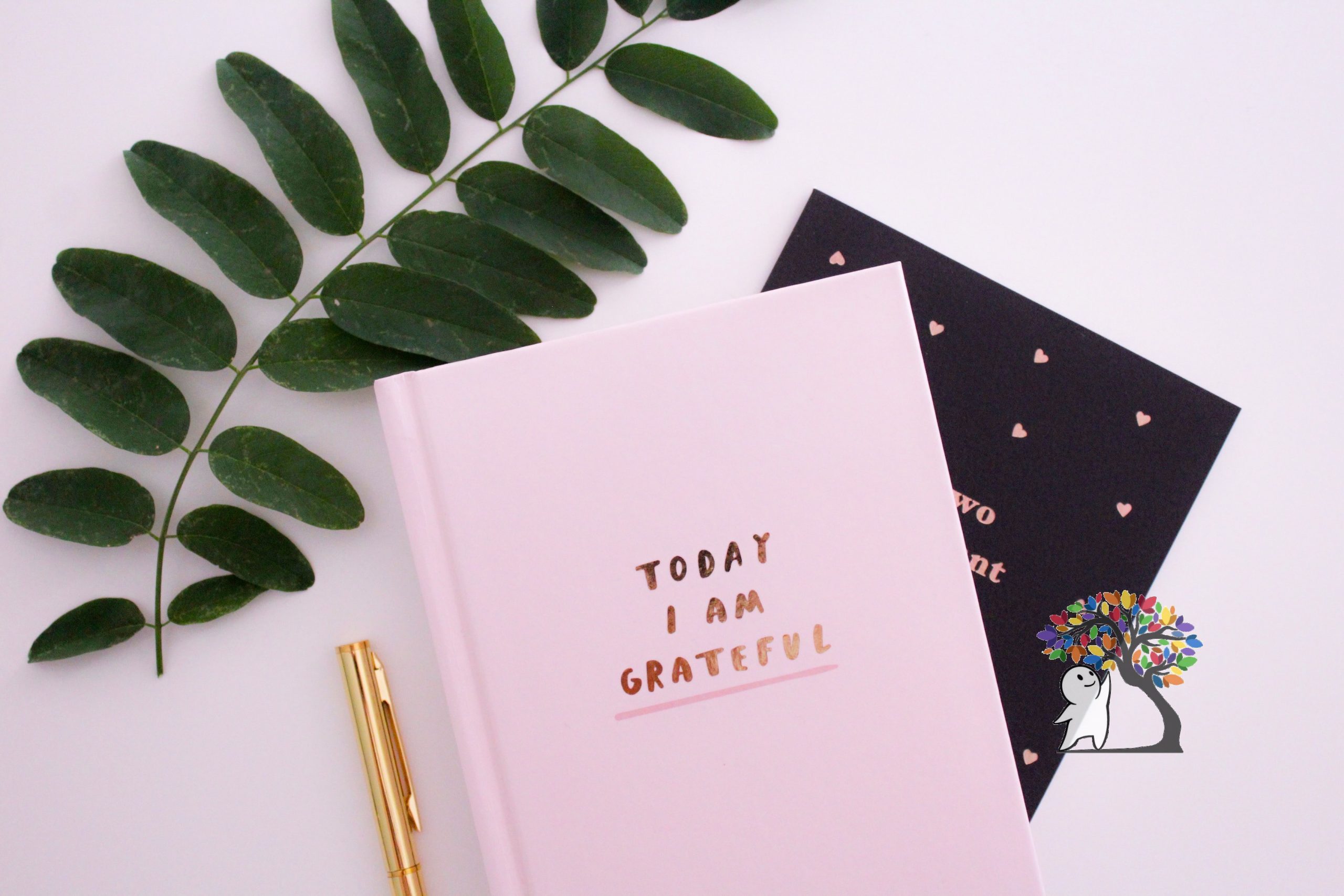




[…] Here is an article for those of you who want to journal, but don’t know where to start. […]
[…] thought patterns that might be shooting you in the foot. This might be a good week for you to keep a short feelings journal, use a mood tracker app, or pause your habit of covering your “icky” feelings with being a […]